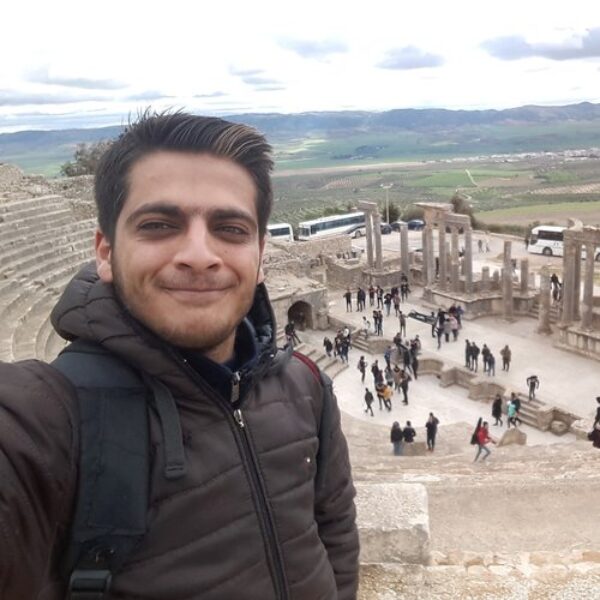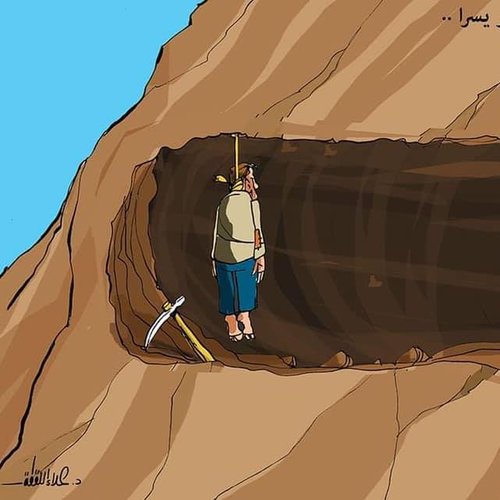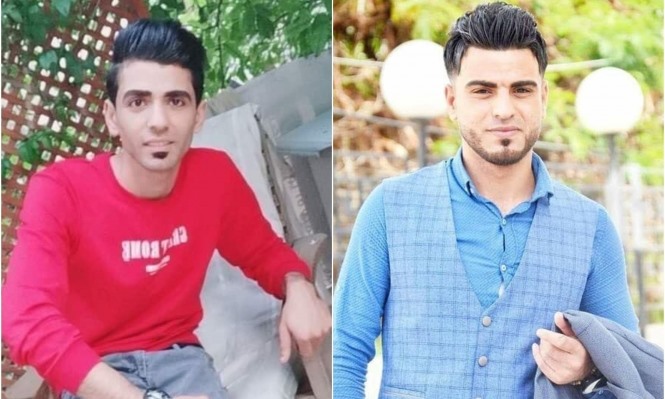
Two weeks ago, I wrote a post on Facebook, alarmed about the increasing rate of suicide among youths in Gaza. At that time, four people had committed suicide in just two days. However, more were to come. Just yesterday, four more Gazans killed themselves in less than 24 hours—including 24-year-old Ayman al-Ghoul, who threw himself from the fifth floor of his house; 23-year-old Suleiman al-Ajjouri, who shot himself in the head after writing a final post on FB (“This is not a futile attempt. This is an attempt at salvation. Complaining to none other than God is a humiliation.”); a 30-year-old woman who hung herself in her home; and 21-year-old Ibrahim Yassin, who set himself on fire a week ago before dying today. The number would have been five if an 18-year-old girl had successfully overdosed.
Gazan youth are killing themselves because they have lost hope that anyone cares about them. They have lost hope because Palestinian parents are unable to meet the needs of their children. They have lost hope because when they graduate from university, they can’t find jobs. Young men have lost hope because they can’t afford to get married until their 30s; instead, they must remain at home, still asking for a handful of money from their parents, feeling useless. In reality, the world has failed the young people of Gaza.*
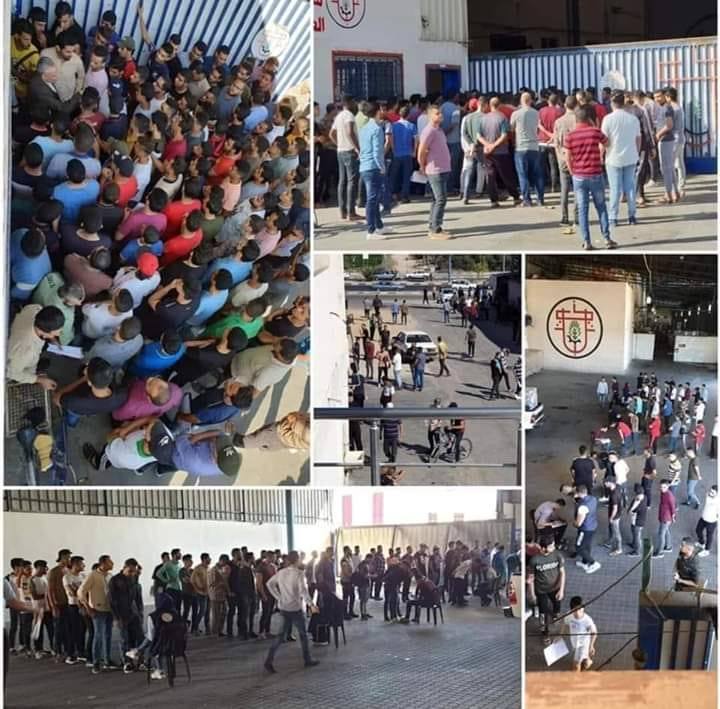
When talking with my friend Hossam in Gaza several days ago, he said he was desperate to find any dignified work possible so he can help his family and not just take from them. He had finally found a job with an ice cream company as a courier, delivering to shops spread across the Strip. He made $5 a day, working from 7 a.m.-9:30 p.m., and sometimes longer. Feeling exploited, Hossam left the job. “I could no longer bear the injustice,” he said. I asked him how his university studies were going, and he responded that he had to drop out this year. I didn’t have to ask why. His family’s financial situation makes it impossible for him to pursue his ambition of becoming an accountant. I told him not to lose hope, that the situation isn’t permanent, and I knew he is stronger than the circumstances. Then his mother heard our conversation and interfered by saying, “yes, advise him, Majd. He is always desperate and hopeless.” But Hossam is no different than other youths, who make up more than half of Gaza’s population.
Another example of Gaza's reality is the Al-Ouda biscuit maker. When it announced a need for five sales workers, nearly to 20,000 people applied, and lining up at the doors to submit their documents. The unemployment rate in Gaza is considered one of the highest in the world, with 75% of people living in poverty.
I have been living for more than four years in Tunisia to pursue my studies. My friends there tell me, “Don't come back to Gaza! You are lucky you are outside. The situation here is catastrophic. You will regret it if you come back.” My friend Mahmoud, who is 21, told me people have started mumbling to themselves on the street, a sign of their mental distress.
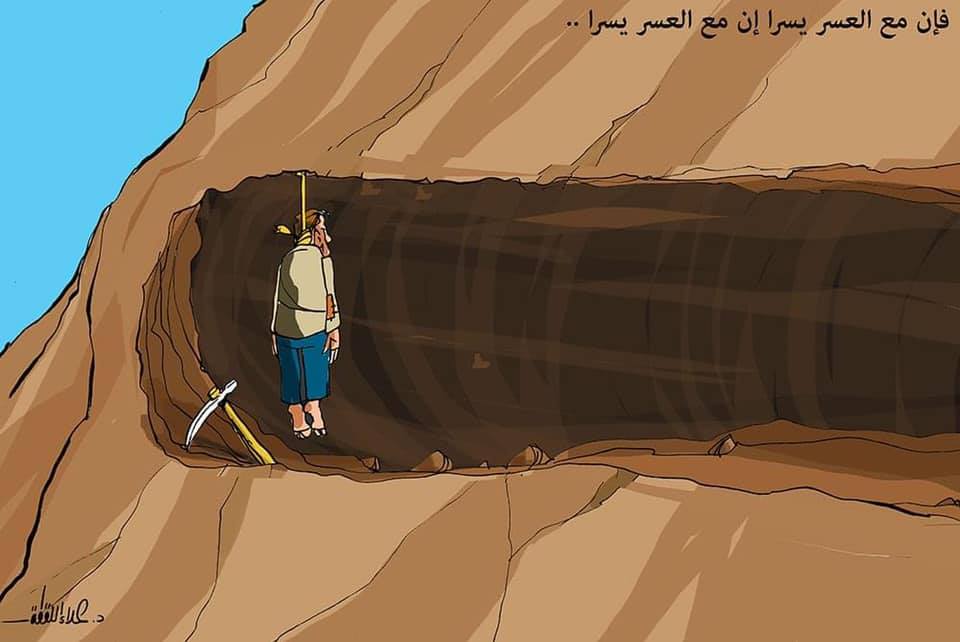
Many dynamics have combined to make the crisis so dire in Gaza: the endless Israeli blockade (permitted by the rest of the world); U.S. President Trump’s decision to halt aid to UNRWA, the UN agency that offers assistance to Palestinian refugees; the inability of the Palestinian Authority to pay employees’ salaries; the threat of COVID-19; and now Israel’s announced plan to make official its annexation of most of the West Bank. There are so many people and entities to blame that really, everyone must accept responsibility and speak up against Israeli crimes and violations of human rights.
There are two messages I want to send with this essay:
What is happening to the people in Gaza is unacceptable. It is a question of humanity and morality. If we allow this to happen to Palestinians today, tomorrow it might happen anywhere else. If we fail in our duty toward Palestinians, no one is safe in the future.
The last message I want to send is to anyone thinking of suicide in Gaza or outside of it: You matter to me. You matter to us. Nothing is permanent and you are stronger than your current circumstances. Stay resistant. Arm yourself with hope. As Ernest Hemingway wrote in The Old Man and the Sea, “Man can be destroyed but he can never be defeated.”
*Not all of the four most recent suicides are linked directly to economic hardship. The woman was reportedly upset that her husband had taken a second wife.

